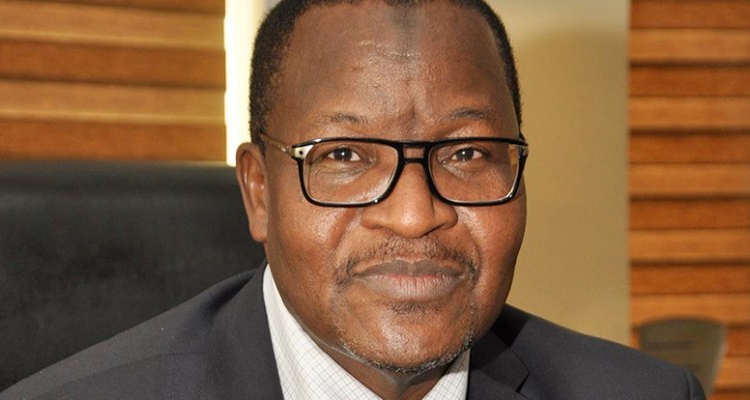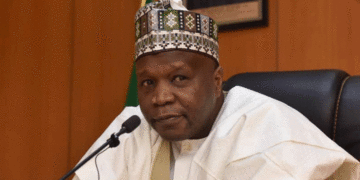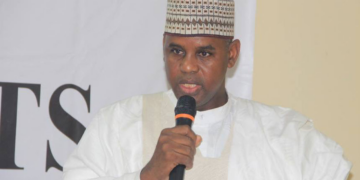In June, 2023, the Nigerian Communications Commission (NCC) issued Nigeria’s first Mobile Virtual Network Operators (MVNO) licence to 25 ICT companies.
The plan of NCC was to use the MVNOs to bridge the 114 access gaps, and connect some 25 million people still without basic telephony service.
This indeed posits huge opportunities for MVNOs but not without challenges, as they would have to be innovative and come up with great business plan to be able to favorably compete with the big players like MTN, Glo, Airtel, otherwise known as the Mobile Network Operators (MNOs) or else, the millions spent in obtaining the license would be wasted, stakeholders have said.
The opportunities
The managing director, Wireless Technology Labs (WTL), Satya Mekala told LEADERSHIP that huge opportunities await MVNOs in Nigeria, while explaining that the MVNOs will serve as drivers to help extent telecom services to certain segments of the country. What this simply means is that, they have to be innovative in designing products and services that the big mobile operators have not been able to adequately deliver and covered, Mekala stated.
“No doubt, the MVNOs have huge opportunities in rolling out their products, especially in the digital space, because with the rate of digitalization in the world, MVNOs business has gone beyond just delivering voice and data services. They can also design digital products that their customers can leverage on while on their platforms. With this, they are not just going to drive subscribers growth, they are also going to drive revenue. So the opportunity is quiet huge. However, it takes planning, to ensure that they design their products the right way and launch the right way,” the managing director averred.
Mekala revealed that the MVNO license was designed in such a way that MVNOs do not actually need to build their own radiospectrum, as they can leverage on the MNOs’ spectrum to operate, hence, the need for them to interconnect with MNOs and other critical stakeholders like WTL and Covalense Digital Solutions for Africa, among others.
“For them to successfully interconnect with the mobile operators, there are technical elements that must be put in place. That is where WTL comes in. We are a MVNO core company. We have designed and built a system that can take care of tier 2 to tier 5 licensees. We are helping these new entrance in the market to understand the technical requirements to successfully connect to MNOs. We have all the core components to supply and deploy, and help them to interconnect with the digital layer customers like Covalense Digital Solutions for Africa,” Mekala stated.
While calling on the federal government to create the enabling environment for MVNOs to thrive, Mekala also tasked MVNOs licensees to collaborate with MNOs and critical stakeholders, to design and launch their products successfully.
In the same vein, the vice president, sales, Covalense Digital Solutions, Seshan, Krishnamurti, applauded the NCC for releasing MVNOs license, even as he disclosed that it will help connect the unconnected and transform the lives of people living in the rural area. “The MNOs are already there; they have the money, the experience and the system. However, they have limitations in that there are still places that are not digitally connected, hence the need to partner with the MVNOs, to make big difference in the lives of the people, especially in the rural area,” he explained.
Krishnamurti explained that during the two years of COVID-19, people dropped out of schools, businesses were closed, but with technology, more people are now working from home. Meanwhile, there are others who were not connected to the internet and their daily livelihood were halted as a result of that, the vice president averred, adding that, the MVNOs are here to change the narrative. “With MVNOs, the elderly in the village can have access to quality healthcare, through telehealth. So in essence, MVNOs is about making a difference in people’s lives,” he stated.
He however urged MVNOs to collaborate with MNOs and other stakeholders. “They should ensure that they carry the MNOs along. They also need to partner with critical stakeholders, for smooth deployment of their services and products. MVNOs should try to understand the customer market segment. If they are not experience in this area, they should get the right advice, the right kind of strategy and planning. They should focus on their customers and give them the best experience possible,” Krishnamurti advised.
The chief operating officer, WTES Project, Chidi Ajuzie, said the essence of the MVNO is to bridge the connectivity gap in Nigeria, adding that with policies like tax exemption for a period of time, it will help operators in that space to thrive. “The MVNOs are new entrance in the market and as such, they should be exempted from tax, to enable them compete favorable in the market. That will ensure that their upfront cost does not swallow them. They have spent millions on their license fee. They are expected to put in some infrastructure and if they are also expected to pay taxes, it will become overwhelming for them, hence, the need for the federal government to create tax break for a period of time,” Ajuzie explained.











